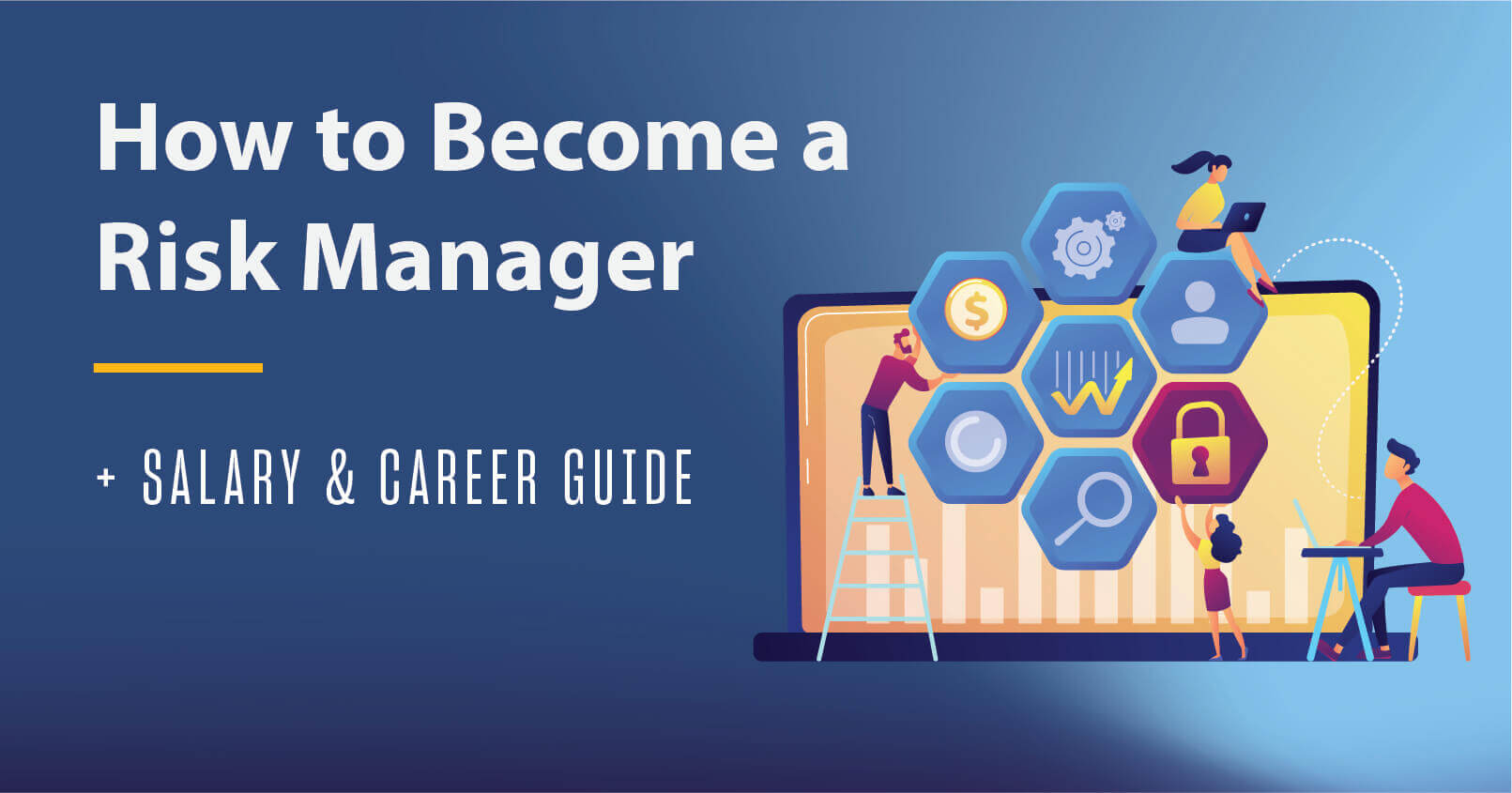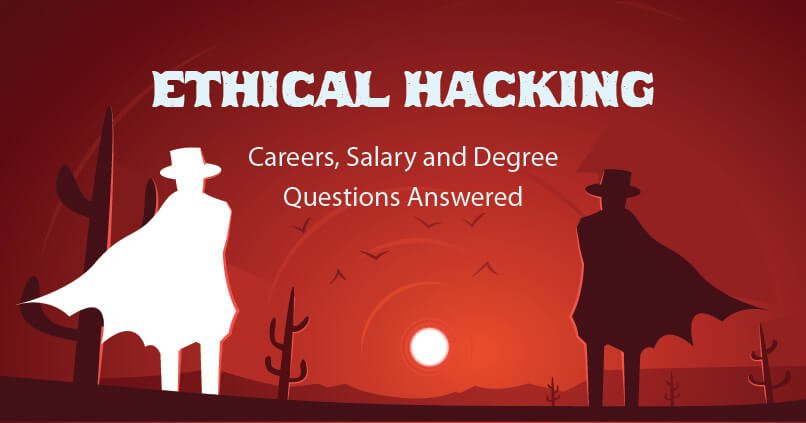No business or organization is without risk — and that’s where the importance of a skilled risk manager comes in. If you have an analytical mind and you’re interested in the inner workings of business and risk management, this might just be the job for you. Plus, the good news is that this in-demand position attracts professionals from a variety of backgrounds — not just business and finance. Keep reading to learn more.
What Is a Risk Manager?
The title may sound self-explanatory, but there is a lot more to a risk manager position than just managing and assessing risk. Here are a few comprehensive definitions:
“Risk Management Professionals seek to identify, analyze and document the risks associated with a company’s business operations, as well as monitor the effectiveness of risk management processes and implement needed changes. The risk management department focuses attention on company-wide, operational, compliance, financial, technology and asset-related risks.“ Association of Certified Fraud Examiners
“Risk Manager — an individual responsible for managing an organization’s risks and minimizing the adverse impact of losses on the achievement of the organization’s objectives. Traditionally, risk managers have focused on event risks, but some organizations have broadened the role to include other types of risk (e.g., operational risks). The risk manager is charged with identifying risks, evaluating risks, selecting the best techniques for treating identified risks, implementing the chosen risk management techniques, and regularly evaluating and monitoring the program. This person is also involved in the managerial processes of planning, organizing, leading, and controlling those activities in a business that deals with various types of risk.“ International Risk Management Institute
What Does a Risk Manager Do?
A risk management professional predicts potential challenges and helps ensure there is a mitigation plan in place. Types of risk management include:
- Strategic
- Legal
- Operational
- Reputational
- Regulatory
- Financial
- Economic
Risk Manager Job Description
As Robert Half explains: “The role of a risk manager is to communicate risk policies and processes for an organization. They provide hands-on development of risk models involving market, credit and operational risk, assure controls are operating effectively, and provide research and analytical support. Risk Managers must have excellent quantitative and analytical skills, along with the ability to apply those skills across a variety of business processes.“
Risk Manager Education Requirements
The education requirements for a risk manager typically include a degree in one of the following areas:
- Risk management
- Management or business studies
- Finance or economics
- ScienceStatistics
- Engineering
- Law
Advanced degrees are usually not required but may be advantageous.
Work Experience Needed
There are many possible paths to working in risk management. To become an actual risk manager, however, you will likely need at least five years of experience, often in related fields, such as insurance or loss control consulting, according to MyPath. More entry-level positions may only require a few years of experience. Senior roles, such as a director of risk management position, will typically require at least 5-10 years of experience.
Certifications or Special Training Required
Certifications are extremely beneficial, and in some cases, they may be required. Some of the most common ones for risk managers include:
- Chartered Enterprise Risk Analyst
- Association of Certified Fraud Examiners (CFE) Certification
- RIMS-Certified Risk Management Professional
- Certified Risk Manager Program (The National Alliance)
- Associate in Risk Management
- Financial Risk Manager (FRM) certification from the Global Association of Risk Professionals
- Professional Risk Manager from the Professional Risk Managers’ International Association
Desirable Hard and Soft Skills
The right skills are essential for any job, and the position of risk manager is no exception. Here are the most common desirable hard and soft skills, as compiled from Robert Half, Rapid and Henry Harvin:
Hard skills
- Analytical risk assessment skills
- Commercial awareness
- Numerical skills
- Ability to understand larger business issues
- Six Sigma skills
- Project management skills
- Business analytics skills
- Technical skills
- Eye for detail
- Good communication and presentation skills
- Planning and organization
- Problem-solving
- Strategic thinking
- Financial knowledge
- Ability to build relationships
- Ability to work under pressure
- Adaptability
- Management and leadership skills
- Strong negotiation skills
- Leadership
Career Paths to Become a Risk Manager
Risk managers come from all types of backgrounds, including business and insurance, and an undergraduate degree in a related field is typically required.
Available internships can give you the experience you need to get your foot in the door. Some entry-level jobs only require a relevant undergraduate degree; other employers are looking for a few years’ of experience. It all depends on the position and the employer, but the good news is that a recent LinkedIn search for “risk manager” positions resulted in more than 54,000 postings. (This number is dynamic and will change daily, but the bottom line is that there are thousands of postings, with new ones being added every day.)
Risk management can fall under a range of different job titles, including:
- Risk Analyst
- Insurance Analyst
- Loss Control Representative
- Risk Consultant
In Indeed’s The Definitive Guide to a Risk Management Career, the steps to becoming a risk manager include obtaining a relevant bachelor’s degree, seeking roles that include risk management duties and obtaining a professional certification in risk management.
Work Environment for Risk Managers
Risk managers work for many different businesses and industries, though many work within banking and finance. Regardless, the work environment will depend on the position, though most are usually located in a specific office. Occasionally risk managers may go out onto job sites, attend conferences and meet with clients.
How Much Do Risk Managers Make
- Average salary as of September 2021: $115,258 (Salary.com)
- Average base salary as of October 2021: $85,812 (Indeed)
- Average is $126,675 (Glassdoor)
Salary ranges vary widely. Your exact compensation will depend on a number of factors, including the job itself, how much experience is required or preferred, your education and background and where the job is located.
Outlook for Risk Managers
The outlook is extremely favorable for risk managers, especially since the concepts of “risk” and “risk management“ are embedded within every type of business, no matter the industry.
As recently reported in Business Wire: “A new report from the Global Association of Risk Professionals (GARP) reveals a majority of risk managers are optimistic about the profession’s outlook, with COVID-19 and economic uncertainty amplifying the need for strong organizational risk management.”
Companies Hiring Risk Managers
Who is in the market for risk managers? As it turns out, a lot of businesses and organizations are looking for skilled risk management professionals, including educational institutions, financial firms, technology companies and health care facilities. Here are some top businesses and organizations that have recently posted for this type of position. For the most recent results, check out LinkedIn and Indeed.
- Amazon
- Fidelity Investments
- Microsoft
- Capital One
- Dana-Farber Cancer Institute
- Visa
- Walmart
- Accenture
- HubSpot
- Crate and Barrel
- Jiffy Lube International
- Target
- Princeton University
Similar Roles / Job Titles
When searching for risk manager positions, you will likely come across a variety of related roles and job titles. Here are 10 risk management job titles you should be aware of:
- Environmental Compliance Specialist
- Loss Control Consultant
- Compliance Consultant
- Compliance Officer
- Risk Analyst
- Risk and Compliance Investigator
- Model Risk Specialist
- Regulatory Affairs Manager
- Chief Risk Officer
Frequently Asked Questions
Risk Manager vs. Cybersecurity Risk Manager
In today’s age, a risk manager and cybersecurity risk manager are often the same thing. A cybersecurity risk manager is an increasingly important position in the field of risk management, especially as cyber crime becomes more prevalent thanks to virtual workplaces.
Advance Your Risk Management Career With a Master’s Degree
This career guide is brought to you by the University of San Diego — a highly regarded industry thought leader and education provider that offers a 100% online Master of Science in Cyber Security Operations and Leadership. This degree program features practical, cutting-edge curriculum taught by expert instructors who share insights drawn from highly relevant industry experience.





